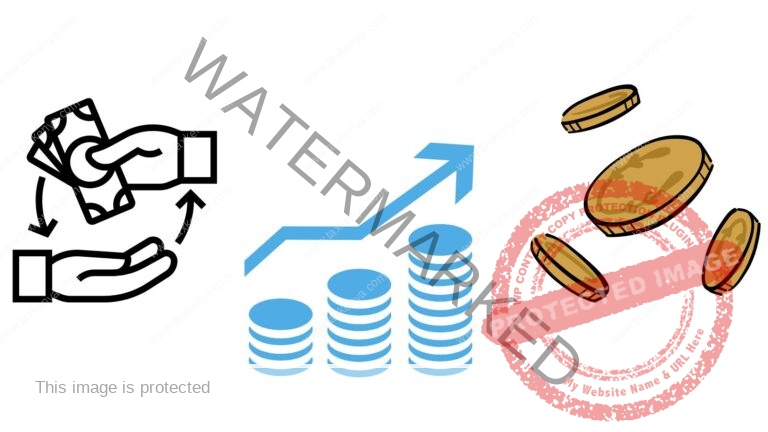Failure to comply with VAT laws results in VAT penalties. There are many penalties in the tax Acts in Kenya. Some of the penalties are specific to the Act, while others cover all the tax Acts. Specific penalties are found in the specific Acts. For example, a specific penalty for VAT will be found in the VAT Act (2013). The general penalties that apply to all taxes are found in the Tax Procedures Act [TPA] (2015).
This post will examine general penalties that apply to all the Acts in Kenya but they affect VAT operations in Kenya.
General Provisions to the Administrative Penalties and Offences
The general provisions stipulate that imposition of a penalty and prosecution for the same act or omission is not allowed. However, if both apply, the Commissioner will decide which to apply.
This means that, according to TPA (2015) a taxpayer should not be penalized and prosecuted at the same time for the same offence.
According to Section 48 of TPA, if the penalty is applied for the offence and paid and the Commissioner goes ahead and prosecutes the person, the penalty becomes refundable tax.
The taxpayer must be refunded by the penalty already paid. Hence, there should be no penalty imposed unless the prosecution is withdrawn.
The following are some of the various penalties that affect VAT operations in Kenya.
1) Registration
VAT registration is only mandatory for those persons whose taxable turnover is ksh 5,000,000 for 12 months. The person is expected to apply for VAT registration online through the I-Tax platform.
However, some persons will fail to apply for the registration. A person who fails to register for VAT without a valid excuse is liable to pay a penalty of kshs 100,000 for every month or part of the month. The penalty is:
- From when the person was supposed to register.
- Up-to-the month immediately before:
- The person applies or
- The person is registered by the Commissioner.
Therefore, any potential taxpayer should register when they qualify to do so because they will pay hefty penalties if they fail to do so.
2) De-registration
Sometimes, a person’s taxable turnover falls below the mandatory kshs 5,000,000. The person is expected to apply for de-registration immediately after that happens. The application for de-registration is done online through the i-Tax platform.
Such a person should apply for de-registration immediately. Any person who fails to apply for de-registration is liable for penalties:
a) From when the person was due to de-register.
b) Up-to-the month immediately before:
- The person applies de-registration.
- Is de-registered by the Commissioner.
A person who fails to apply for de-registration for VAT without any credible excuse is liable for a penalty of kshs 100,000 for every month or part of the month. However, the penalty should not exceed kshs 1,000,000.
3) Failure to Keep Records
The tax laws require that every taxpayer must have records to support their tax details. Failure to keep, retain or maintain tax records for any reporting period for the time as specified in the Act attracts penalties as follows:
a. 10% of tax payable or kshs 100,000 whichever is higher.
b. If there is no tax, the penalty is kshs 100,000.
4) Late Submission of tax returns
Tax returns are the basis for tax assessments. Hence, tax returns are supposed to be submitted by the due date. Failure to submit the tax returns attracts penalties as follows:
a. 5% of the amount payable or
b. Kshs 10,000 whichever is higher.
5) Tax Shortfalls
Tax shortfall is the difference between the amount of tax payable and the amount of tax paid. The shortfall will result in tax liabilities that are established due to:
a. False information.
b. Misleading statements.
c. Omission of information in statements.
This results in tax shortfall penalties. The penalties for the tax shortfall are as follows:
a. 75% of the tax shortfall if the statement was deliberate.
b. 25% of tax shortfall in any other case.
In cases where there are repeat offences, the amount of penalty is increased as follows:
a. 10% in 2nd application of the Section.
b. 25% in 3rd or subsequent applications of the Section.
However, the amount of penalty is decreased by 10% when a person voluntarily discloses the information. The disclosure must be:
i) Before discovery of the tax shortfall or
ii) Commencement of a tax audit
However, the tax shortfall penalty is not payable if:
a. The person did not know or could not be reasonably expected to know the statements were false or misleading.
b. The shortfall arose due to the taxpayer taking a reasonably arguable position on the application of law, e.g. in submitting a tax return. This means that the tax shortfall was not intentional.
c. Failure was due to clerical or similar error. This is, however, not repeated.
It is important to note that the fact that the taxpayer has voluntarily established the tax and paid through self-assessment will not be taken as an arguable position if it contradicts any of the following while in force:
a. Public ruling.
b. Private ruling.
c. Late payment interest is applicable when due tax is not paid by the due date.
6) Tax Avoidance
Failure to adhere to tax laws may at times be considered tax avoidance by the Commissioner. In such cases, the Commissioner may apply tax avoidance provisions when assessing a taxpayer. The penalty due is equal to double the amount of tax that would have been or was avoided.
7) Failure to Comply with Electronic Tax System
There are various specified penalties for failure to comply with the electronic tax system. The following are the penalties where a person fails to:
a) Submit a tax return electronically.
b) Pay tax electronically.
Commissioner will require satisfactory reasons for failure to comply with the electronic tax system. The taxpayer must submit the reasons in writing within 14 days. Failure to provide satisfactory reasons attracts a penalty of kshs 100,000.
8) Failure to Appear Before Commissioner
Sometimes, the Commissioner summons taxpayers to appear for questioning on various aspects. Some taxpayers appear, while others fail to appear. Failure to appear before the Commissioner when summoned attracts the following penalties:
a. Kshs 10,000 for an individual taxpayer.
b. Kshs 100,000 for corporate taxpayers.
9) Fraudulent Claims for Refund
Taxpayers have a right to claim any overpaid taxes where the VAT Act allows. This can be in the form of tax credits from tax refunds from VAT. If a refund claim is fraudulent where the taxpayer is attempting or has succeeded in stealing money in the form of VAT refunds, this attracts penalties. The amount of penalty is equal to two (2) times the amount claimed that the taxpayer has already claimed or is attempting to claim.
10) General Provisions
There are general provisions that guide the Commissioner on the imposition of the penalties applicable and how to administer them. It is important to note that:
a. Each penalty is calculated separately for each tax type.
b. If an act or omission attracts more than one penalty, the Commissioner determines the penalty to apply.
c. The penalties are only liable when the Commissioner:
- Informs the taxpayer in writing.
- Sets out the amount of tax payable separately in the demand notice.
- Notifies the taxpayer the due date for payments, which is at least 30 days after the notification.
- The penalties are payable on the date specified in the notification.
11) Remission of Penalties and Interest
A person can apply for remission of tax penalties and interest from the Commissioner. However, the person must include the reasons for the application.
Though it is the taxpayer who benefits from remission of penalties and interest, application of the remissions for the penalties and interest can be:
a. Initiated by the taxpayer through an application or
b. Initiated by Commissioner.
The Commissioner may remit whole or part of the penalties, except in cases of tax avoidance with the approval by Cabinet Secretary.
a. In case of interest, the application is only due to:
b. Uncertainty with the question of law or fact.
c. Consideration of hardship and equity.
d. Impossibility or undue difficulty or expense to recover the tax.
However, the Commissioner will maintain a public record of the remissions applications and specific reasons.
The records maintained should be reported to the Auditor General once every three months. The Auditor-General is the auditor for the government.
Conclusion
From this post, it is obvious the penalties are very high. There are TWO important things to note:
- Penalties and interest are not from productive tax activities. Penalties and interest are taxpayer’s money that should be used to expand the business.
- Though the TPA Act provides for remission of penalties and interest, this is not obvious. There are strict conditions.
NOTE: Always consult the KRA website for the latest penalties.
Feel free to send us tax and investments in Kenya questions or topics via email, taxkenya@gmail.com that you would wish to be covered on this website.
To test your knowledge about taxes in Kenya



